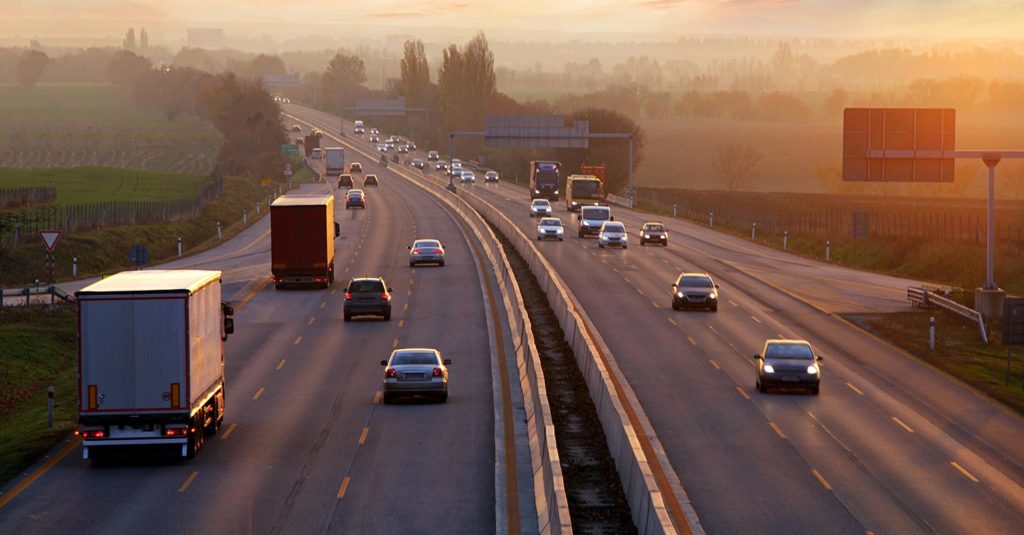What is the ULEZ? An Update
This is an update to our previous article to include ULEZ expansion from 29 August 2023. We also explain how non-UK registered vehicles are affected and can attract penalty charges, even though they may be exempt.
Since 8 April 2019, there has been a charge to drive within areas of central London known as the Ultra Low Emission Zone (ULEZ). Its purpose is to improve air quality.
In order to help further improve the quality of the air in London, the ULEZ has expanded across all of the London boroughs as of 29 August 2023. Transport for London (TfL) contends that road traffic is the single biggest contributor of nitrogen dioxide.
Most vehicles are exempt, but if a vehicle does not meet the ULEZ emission standard, there is a daily charge of £12.50 (most vehicles) or £100 (goods and other vehicles over 3.5 tonnes and buses or coaches over five tonnes) to enter the Zone.
The ULEZ:
- affects all vehicles
- operates all day, every day of the year, except Christmas Day
- does not replace the Low Emission Zone (LEZ) that covers most of Greater London and is operational 24 hours day, every day of the year
- is in addition to any £11.50 Congestion Charge (that operates 0700 to 1800 hours Monday to Friday)
- imposes penalty charges of £160 for non-compliant cars/small vehicles and £1,000 for large vehicles (£80 and £500 if paid within 14 days).
Transport for London states: “Londoners are developing life-changing illnesses such as cancer, asthma and lung disease, and there is a higher risk of dementia in older people. Air pollution even contributes to the premature death of thousands of Londoners every year. It’s not just a central London problem. In fact, the greatest number of deaths related to air pollution occur in outer London areas. That’s why the ULEZ has expanded across all London boroughs.”
Vehicle standards and ULEZ emissions standards
The TfL state that currently, nine out of 10 cars already driving in outer London already meet the ULEZ emissions standards.
- Cars: the minimum emission standard is Euro 4 for petrol vehicles (generally ones first registered with DVLA after 2005) and Euro 6 for diesel vehicles (generally ones first registered with DVLA after September 2015). So drivers of diesel cars will be particularly affected, unless they have a car of less than about four years old.
- Vans, minibuses etc: the same emission standards apply. All new diesel vans sold w.e.f. September 2016 should meet Euro 6 standard, and all petrol vans registered at DVLA w.e.f. January 2006 should meet Euro 4.
- Larger vehicles (i.e. goods vehicles over 3.5 tonnes and buses/coaches with more than eight passenger seats over five tonnes gvw): Euro VI standard has to be met – these are normally ones registered at DVLA after 2014.
- Motorcycles, mopeds etc: these must meet Euro 3 standards (normally registered after July 2007.)
You can check if your vehicle meets the standards online at Check your vehicle.
Discounts and exemptions: Some drivers and vehicles qualify for at least a temporary 100% discount from the Ultra Low Emission Zone charge (ULEZ). Others are entirely exempt. More information can be found at ULEZ discounts and exemptions.
There is also a scrappage scheme to assist those with vehicles that do not comply to dispose of their vehicle and, if they wish, use these funds to purchase a compliant vehicle.
Non-UK registered vehicles and ULEZ
Owners of non-UK registered vehicles must also meet the ULEZ emissions standard or pay the daily charge to drive within the zone. Even if the vehicle is compliant with the emissions standards, it will need to be registered with the TfL’s partner, EPC plc.
The problem for many vehicle users is that their vehicle may not be registered in DVLA, and the ULEZ system is built around number plate recognition of DVLA-registered vehicles. Often, these will be foreign vehicles visiting London, whose drivers are unaware of the need to register. Because the vehicle is not registered as exempt, TfL cannot ‘see’ whether its emissions standard makes it exempt. As a result, penalty charges will be issued, and it may be some time before the problem comes to the attention of the driver – by this stage, the penalty amounts may be large.
Even though charges have been raised, it is still possible to have them reversed by providing evidence in the correct format.
Ashtons Legal has advised a number of clients who have faced this specific issue, sometimes facing large penalty amounts. In addition, we have been able to assist owners of UK-registered vehicles facing ULEZ problems, including problems concerning hire vehicles.
As large penalties can be payable to TfL as a result of the ULEZ scheme, it can be very cost-effective to take legal advice to reverse or reduce them. In addition, it is vital not to ignore action by TfL – they can register the penalty as an unpaid debt and seek an Order for Recovery.
Where it is contended that a vehicle should not have incurred a penalty charge, there is an appeal process. There are only limited grounds on which one can appeal.
Contact our road transport solicitors today
If you require any advice concerning the ULEZ, Goods and Passenger Operator Licencing, including advice concerning DVSA Investigations, correspondence with the Office of The Traffic Commissioner or Traffic Commissioner Preliminary Hearing/Public Inquiry work, then please contact us using our online enquiry form or by calling 0330 404 7949.
Tags: dvla, Lawyers, London, Regulatory, Road, road transport, Solicitors, TfL, Tim Ridyard, Traffic, Transport, Transport for London, ULEZ, Ultra Low Emission Zone
How can we help?
If you have an enquiry or you would like to find out more about our services, why not contact us?

